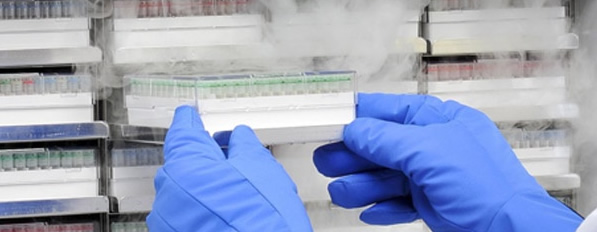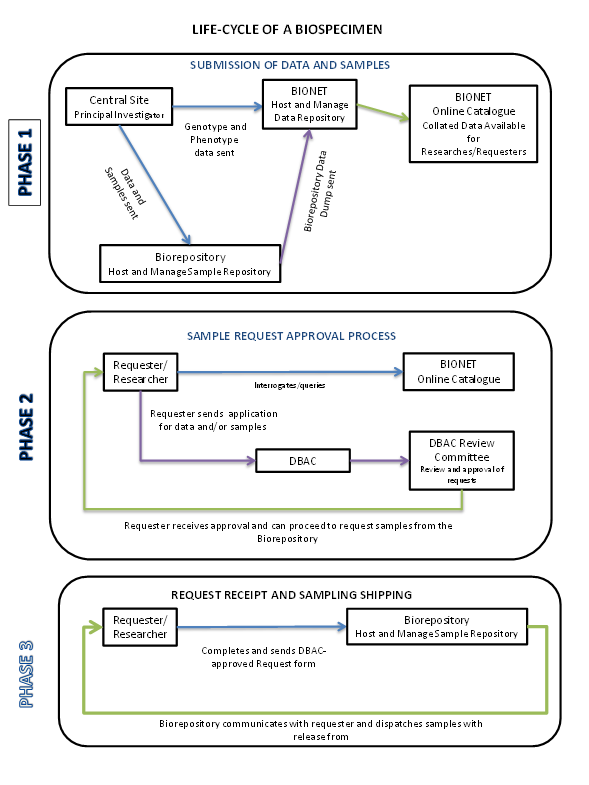
The goal of the Human Heredity and Health in Africa (H3Africa) Initiative is to enhance the capacity of African researchers to conduct state of the art genomics research. H3Africa aims to undertake cutting edge research to advance understanding of the genetic and environmental determinants of common diseases in Africa and to use this knowledge to improve the health of African populations. The H3Africa biospecimen sharing, access and release policy is built upon H3Africa principles of ethics, governance and resource sharing that have been established by the NIH and Wellcome Trust and the H3Africa consortium members. These principles aim to strike an appropriate balance in ensuring that adequate safeguards are in place to protect participants, while maximizing the ability of investigators to advance research.
Enrollment of study participants and Biospecimen collection is ongoing. Deposit of H3Africa biospecimen collections began in 2016. A description of the collections that includes details about available samples will be maintained in an online public access catalogue (H3Africa Biospecimen and Data Catalog) as the information becomes available. At this time, general information about NIH-funded Collaborative Centers and research projects that are contributing biospecimens is at H3Africa. When the biospecimen collections become available, applications to use them will be reviewed by the Data and Biospecimen Access Committee (DBAC).
General Guidelines
The H3Africa Initiative is committed to providing DNA samples generated by the H3Africa research projects to the research community. H3Africa will initially prioritise sharing of biological samples within the consortium before releasing the biospecimens to the wider African scientific community, and then to the international community if materials remain. In compliance with current international standards to protect participant confidentiality, data generated from H3Africa samples are expected to be shared with qualified researchers within the wider scientific community via established controlled access processes at the European Genome-phenome Archive (EGA) or the database of Genotypes and Phenotypes (dbGaP).
Note, investigators generating microbiome/metagenomics data could choose to deposit these data in open access databases, but if they do so, it is important that any human sequence contamination is removed prior to submission. To gain access to H3Africa DNA samples, a request to use the samples must be submitted to an independent H3Africa Data and Biospecimen Access Committee (DBAC) for approval. After a biospecimen request is approved, the responsible institutional official must sign a Material Transfer Agreement (MTA), which governs the terms and conditions on which access will be granted. In addition, the applicant must provide a signed statement assuring that they have read and understood the MTA. Download H3Africa Consortium Biospecimen Sharing Access and Release Policy.
H3Africa Biospecimen Lifecycle






